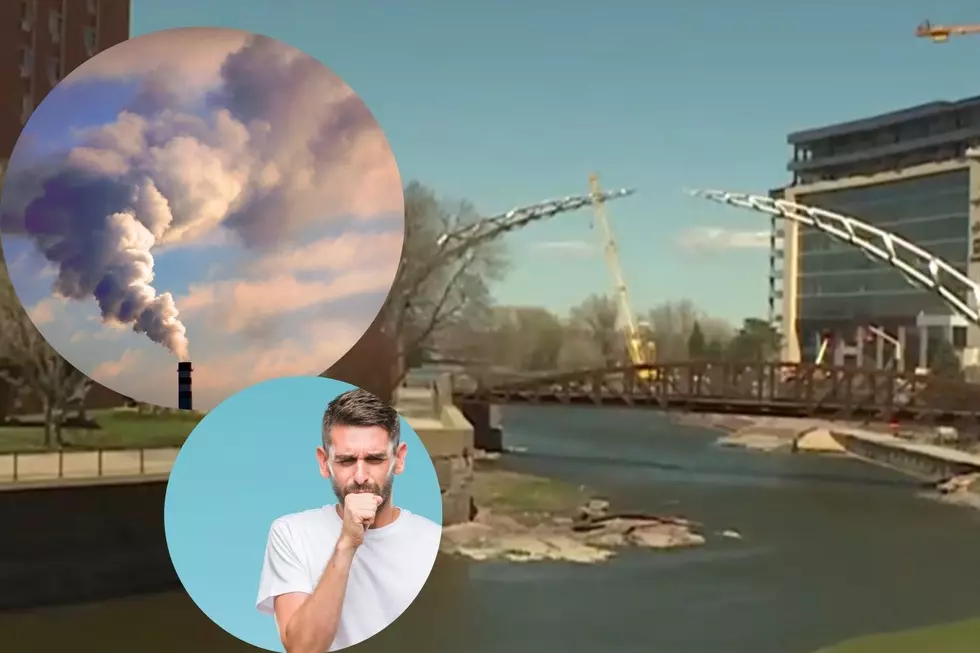
How Dangerous Was the Canadian Wildfire Smoke in Sioux Falls?
The air quality in the Sioux Empire has been much better the past few days than it was, say this time last week. The smoke lingering from the Canadian Wildfires has finally subsided.
I checked the air quality index meter on the U.S. Environmental Protection Agency website prior to writing this story, and it said the air quality for Sioux Falls as of (August 5) was moderate. It had been registering on the unhealthy side for a few days.
The moderate indicator means the air quality is acceptable. But, there is still a risk for some people, especially those who are sensitive to air pollution.

Once the smoke from the wildfires made its way into the Sioux Falls area, it kind of reminded me of my youth and all the time I spent hanging out in smoky bars like the Pomp Room, Night City, Jamz, and the Crow growing up.
Thankfully, I have never been a smoker. But, since I spent practically every Friday and Saturday night in smoky bars throughout the 80's and early 90's, I have to wonder how many packs a day that second-hand smoke I was breathing in equates to? I'm guessing I am better off not knowing.
As the years go by, I've tried to get healthier later in life. I am a jogger now, and I run 6-days a week outside. There were a few days last week when I probably shouldn't have gone running. I could really tell at times all that Canadian Wildfire smoke was doing a number on my breathing and my ability to have what I consider to be a productive run. The haze in the air was a little thick at times.
You seriously have to wonder what that smoke is doing to your body. Especially to those of us who are elderly, have a health risk like heart, asthma, or other lung diseases, or women who are pregnant.
According to the EPA website, smoke, like we have experienced recently, is made up of a complex mixture of gases and fine particles produced when wood and other organic materials burn. The biggest health threat from smoke is from fine particles. These microscopic particles can get into your eyes and respiratory system, where they can cause health problems such as burning eyes, runny nose, and illnesses such as bronchitis. Fine particles also can aggravate chronic heart and lung diseases and even are linked to premature deaths in people with these conditions.
Typically, if you're a healthy person, you're not at a major risk from short-term exposure to smoke. However, you should still be mindful about breathing it in for extended periods.
If you do have certain health risks, that's a different story entirely. Those at risk must use common sense. Pay attention to air quality reports where you live, and stay indoors when advised to do so.
When in doubt, you can always use this website as a gauge to check the air quality in your area.
Source: U.S. Environmental Protection Agency
The 100 Best Places to Live in the Midwest
KEEP READING: See 25 natural ways to boost your immune system
More From KKRC-FM / 97.3 KKRC









